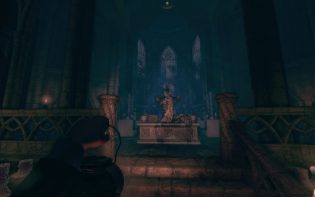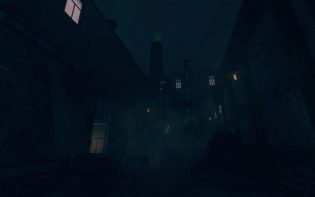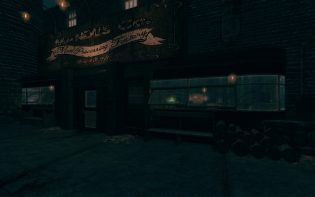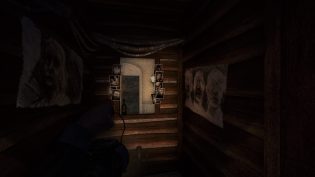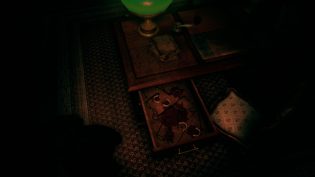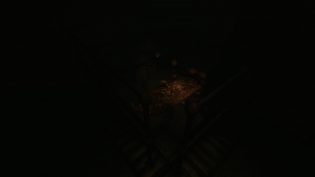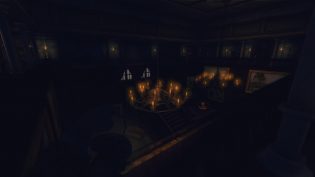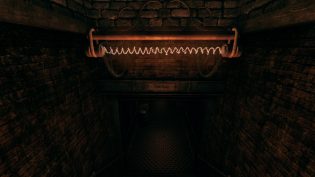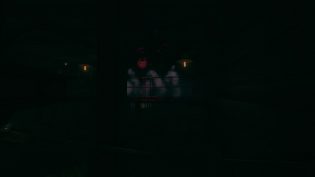Three years ago Amnesia: The Dark Descent took everyone by surprise. When all big budget games decided to ditch the “slow paced” genres and bank everything into the “cinematic” and explosive, a tiny studio called Frictional Games did everything differently and finally got the recognition they’ve deserved ever since Penumbra. After a slow start and very niche horror success it exploded in popularity due to the rise of the “scare cam” let’s players, who loved to scream like children on camera and pretend to be very scared. What once was a niche evolution of horror adventure for a smaller audience became a well known huge hit, something to play on a bet, “the scariest game of all time”.
It’s not surprising then, that after a while a counter reaction followed. “The game isn’t even scary”, “why is it so popular”, “this is so lame and overhyped” and etc. It’s in this climate the “sequel”(not actually a sequel and from a different developer) Amnesia: A Machine for Pigs got released. The game has been just released and already there are thousands of people disappointed in it without even trying it and being shocked that Pigs isn’t The Dark Descent 2 (which will never happen and wouldn’t have happened). Which is especially funny, since in many ways A Machine for Pigs is exactly the kind of game Frictional wanted to do in a while.
This is the continuation of the storytelling evolution that started in Amnesia, and which is well known to The Chinese Room. Lots of gameplay elements that were adding to the illusion that The Dark Descent was mechanically deeper and closer to survival horror are removed entirely. Which is fine, since those were the elements that got in the way of telling the story naturally, in a good pace. No inventory, no keys, no tinderboxes or oil for the lamp. No visible health meter or sanity status. The character can still hallucinate, become scared and die from being attacked, it’s just done without additional screens. And you still have to solve puzzles, you’re just not using inventory for that, rather just carry things in the world. And it feels less “gamey” as a result. Some will lament this change, but frankly, I felt that a lot of these elements in the original were more of a legacy of Penumbra series, where those actually made sense and played an important role, unlike in TDD.
The story itself is so much deeper and more interesting. It’s sad, it’s desperate, it’s providing parallels for the real history, asking questions that make you, the player, question real world. The game has great sound, voice acting and absolutely amazing soundtrack. Although, it does also include the awkwardly explained audio diaries and letters that someone apparently threw around the game world. But still, it sounds great and it looks great with a fantastic visual design that elevates the capabilities of the outdated engine.
And if I would have something to criticize it’s the really slow build up that it has and that it really lacks in the stealth sections. The former in general feels justifiable, as it serves the story and the mood, but the lack of danger does make it a bit too comfortable to play. But when things start going, it becomes a really tense game. While the latter is just a missed opportunity. It’s understandable that the pace of a story needed less “distractions”, but while The Dark Descent was usually really good at balancing the stealthy tense gameplay and the story-driven parts, Pigs leans a bit too heavily into the story.
I loved this game. Perhaps more than the original, where the overabundance of the gameplay sections by the end started to become tiresome. And I wouldn’t be surprised to learn that the next secret project Frictional are currently working on is closer to Pigs than to their earlier games. Also, it was really hard to write about this game without mentioning what the story is about, but it’s better to go in blind as the story is extremely beautiful and disgusting, horrifying and exciting, sad and slightly optimistic. And when you’re done with the game, it stays with you, just like all the best stories told via different mediums are.


